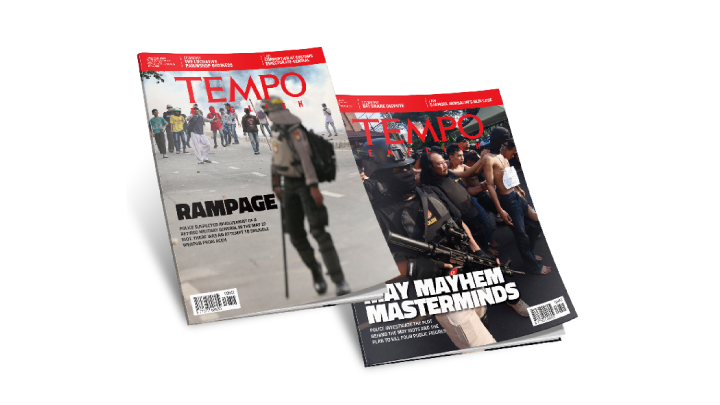Quality Coverage and Crowd Funding
Tuesday, June 18, 2019
arsip tempo : 171419355479.

It was found in two editions of May 21-22, 2019 rioting published by Tempo over the last two weeks. We were surprised to find the portable document format (PDF) files of both issues circulating on Sunday morning in WhatsApp application conversation groups. The digital editions of Tempo appeared on Saturday evening and the printed version only came out on Monday morning.
Some Tempo Media Apps digital subscribers appreciated the coverage and then
...
Subscribe to continue reading.
We craft news with stories.
 For the benefits of subscribing to Digital Tempo, See More
For the benefits of subscribing to Digital Tempo, See More








